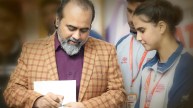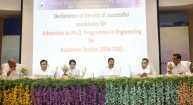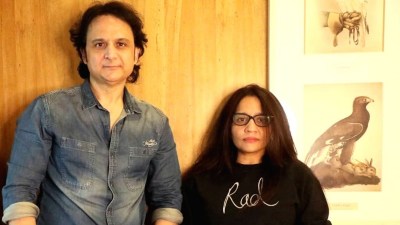By Eduardo Duarte
The music industry is experiencing a dramatic shift, largely driven by rapid advances in technology. From AI-powered composition tools to immersive virtual concerts, innovation is transforming how music is made, learned, and shared. As these changes unfold, it’s clear that music education must also adapt—equipping the next wave of musicians with the skills, tools, and mindset they’ll need to thrive in this new era.
Embracing Digital Audio Workstations (DAWs)
Digital Audio Workstations such as Logic Pro, FL Studio, Ableton Live, and GarageBand have become essential tools in modern music production. These platforms offer everything from composing and recording to editing and mixing capabilities. Integrating DAWs into the classroom allows students to work with the same technology professionals rely on every day. Learning to use these tools helps turn creative ideas into polished tracks while building technical proficiency.
Teachers can introduce DAWs through hands-on projects like producing a short song or remixing a popular hit. This kind of active learning not only makes lessons more engaging, it also builds confidence and encourages experimentation.
Leveraging Interactive Learning Platforms
Apps like Soundtrap, Yousician, and Flowkey are reshaping how students practice and grow. With gamified experiences and personalized feedback, these tools make learning fun, measurable, and accessible. They’re especially helpful in hybrid or remote learning settings, where maintaining engagement can be a challenge.
By weaving these platforms into their teaching, educators can better support different learning styles and keep students motivated. These resources can also help close skill gaps and bring more inclusivity into the music learning experience.
Exploring Virtual And Augmented Reality
Once the stuff of science fiction, Virtual and Augmented Reality are now making their mark in music education. VR can simulate live performance settings, offering students a chance to rehearse stage presence and manage performance anxiety in a risk-free space. AR, meanwhile, can overlay helpful visuals on instruments, aiding in technique and practice.
Schools can explore affordable VR options or partner with tech startups to bring immersive learning into the fold. These tools connect abstract theory to real-world application in exciting and memorable ways.
Encouraging Online Collaboration
Today’s musicians often work remotely, and platforms like BandLab, Soundation, and Soundtrap make it easy to co-create across distances. These cloud-based tools allow for real-time collaboration, mimicking the flow of a professional recording studio.
Teachers can design collaborative assignments where students form virtual bands or trade remixes. This helps build not only technical know-how but also key soft skills like teamwork, communication, and time management.
Integrating AI And Machine Learning
Artificial Intelligence is quickly becoming a creative partner in music. Programs like Amper Music, Google’s Magenta, and AIVA can assist with everything from composing to mastering. While they don’t replace human creativity, they offer new possibilities for experimentation.
Introducing these tools in the classroom invites rich discussions around the future of music, originality, and ethics. It also shows students how AI can enhance, rather than compete with, their artistic vision.
Utilizing Online Learning Resources
Massive Open Online Courses (MOOCs) from places like Udemy, MasterClass, Coursera, and edX give students access to expert instruction, often from top-tier institutions or award-winning professionals. Whether it’s learning theory from Berklee or picking up tricks from Grammy-winning producers, students can stretch beyond what the classroom alone can offer.
Educators can assign these courses as supplemental resources or recommend them for further exploration. They’re a great way to support self-directed learning and introduce a wider range of perspectives.
Promoting Digital Literacy
In the modern music world, being a great performer isn’t enough. Artists also need to be digitally fluent. That includes managing software, organizing digital files, understanding online etiquette, and staying secure online.
Digital literacy should be baked into every aspect of the curriculum. From saving project files properly to using social platforms strategically, these lessons prepare students to work independently and confidently in the digital realm.
Addressing Accessibility And Inclusivity
Technology has the power to level the playing field in music education. Tools like adaptive instruments, screen readers, and accessible interfaces can make music more reachable for students with disabilities. Online platforms also open doors for learners in rural or underserved communities.
By incorporating inclusive tech, schools can ensure every student has a chance to participate and succeed. That starts with investing in both the right tools and the training to use them effectively.
Encouraging Lifelong Learning And Adaptability
With technology evolving constantly, musicians must be flexible and willing to learn continuously. Educators can lead by example—exploring new tools and staying curious themselves.
Assigning projects that explore new plugins, emerging trends, or up-and-coming apps helps foster this mindset. Encouraging exploration now builds the adaptability students will need throughout their careers.
Building A Tech-Integrated Curriculum
To prepare students for tech-centric music careers, schools need to fully embed music technology into their curricula. That means going beyond electives dedicated courses in production, sound design, and even digital marketing should be core offerings.
Conclusion
Working with industry professionals can help align coursework with real-world demands. Guest speakers, internships, and mentorships add valuable context and connection to the industry. Music education is at a turning point. Embracing technology isn’t about replacing tradition, it’s about enhancing it. By weaving modern tools into their teaching, educators can help shape musicians who are not only talented but also versatile, tech-savvy, and ready to innovate.
ALSO READ: A Day In The Life Of A Product Manager- Driving Innovation And Thriving On Customer Satisfaction











